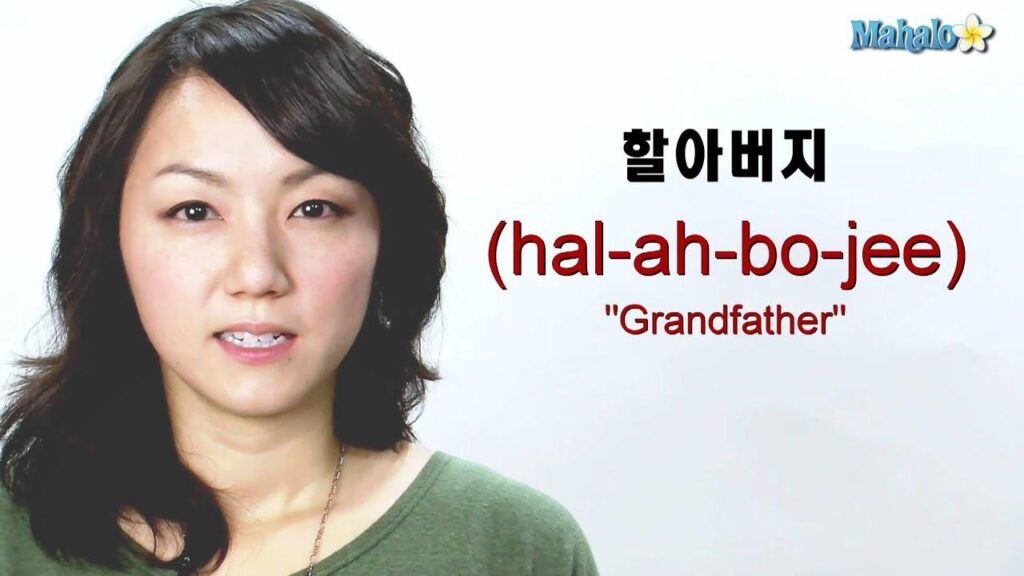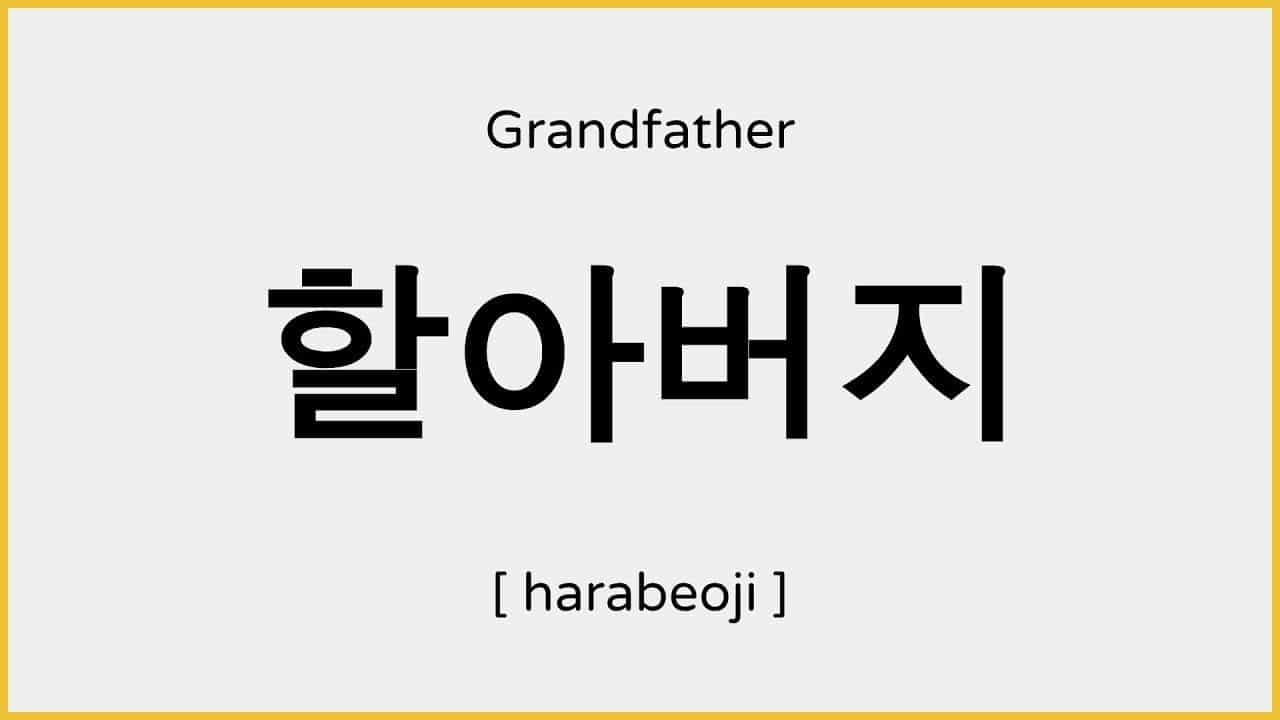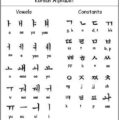

How do you pronounce “grandfather” in Korean?
How do you say grandfather in Korean? This question often arises among learners of the Korean language or those keen on understanding Korean culture better. In Korean, the word for grandfather can be expressed in different forms depending on various contexts, including the speaker’s relationship with the grandfather or the preferred terminology within families. This article delves into the nuances surrounding how do you say grandfather in Korean, including its pronunciation, cultural significance, and variations used in different regions.
Understanding the Basic Term for Grandfather in Korean
The most common way to say “grandfather” in Korean is 할아버지 (harabeoji). This term is widely used among Koreans when referring to their paternal or maternal grandfathers.
Pronunciation of 할아버지
할아버지 is pronounced as “ha-ra-beo-ji.” The pronunciation can be broken down as follows:
- 하 (ha) – a short sound akin to the English “ha.”
- Lingo Mastery (Author)
- English (Publication Language)
- 289 Pages - 08/03/2020 (Publication Date) - Lingo Mastery (Publisher)
- [GENTLE YET POTENT CLEANSING OIL] Effective in eliminating makeup residue, blackheads and sebum, whilst preventing pore congestion. Essential step for double cleansing, with glowy glass skin results.
- [MILD INGREDIENTS ONLY] Formulated with Heartleaf extract for soothing effects on the skin
- [FOR ALL SKIN TYPES] Hypoallergenic & Non-Irritation Test completed, making it suitable for all skin types and especially Sensitive, Acne-Prone Skin.
- [GENTLE ON THE EYES] No eye stinging experiences when used around eyes, Eye Irritation Test (Cruelty Free HET-CAM Test) completed
- [HOW TO DOUBLE CLEANSE] ① Apply the cleansing oil to dry skin and gently massage for 1-2 minutes. ② Emulsify with water to effectively remove sebum. ③ Wash off all oil residues by using a water based cleanser.
- Hardcover Book
- Huh, Aaron (Author)
- English (Publication Language)
- 256 Pages - 12/20/2022 (Publication Date) - DK (Publisher)
- 라 (ra) – similar to the English “ra” but spoken quickly.
- 버 (beo) – pronounced like “buh” with a slightly softer ‘b.’
- 지 (ji) – a soft “ji” similar to the English “gee.”
Cultural Significance of 할아버지
In Korea, family plays a central role in society, and the term 할아버지 embodies respect and affection. Grandfathers often hold prestigious positions within the household, providing wisdom, guidance, and traditional values. Understanding how do you say grandfather in Korean is essential for those wishing to appreciate this rich linguistic and cultural heritage fully.
Cultural Norms:
- In many Korean families, hierarchy and respect are vital. Addressing a grandfather as 할아버지 acknowledges this hierarchical structure in family dynamics.
- Grandfathers are often involved in the upbringing of children and provide a historical perspective on family traditions.
Alternative Terms for Grandfather in Korean
While 할아버지 is the most widely recognized term for grandfather, there are alternative words and slang usages.
Informal Terms
- 뻘 (ppeol) – a less formal term often used by younger generations.
- Lingo Mastery (Author)
- English (Publication Language)
- 289 Pages - 08/03/2020 (Publication Date) - Lingo Mastery (Publisher)
- [GENTLE YET POTENT CLEANSING OIL] Effective in eliminating makeup residue, blackheads and sebum, whilst preventing pore congestion. Essential step for double cleansing, with glowy glass skin results.
- [MILD INGREDIENTS ONLY] Formulated with Heartleaf extract for soothing effects on the skin
- [FOR ALL SKIN TYPES] Hypoallergenic & Non-Irritation Test completed, making it suitable for all skin types and especially Sensitive, Acne-Prone Skin.
- [GENTLE ON THE EYES] No eye stinging experiences when used around eyes, Eye Irritation Test (Cruelty Free HET-CAM Test) completed
- [HOW TO DOUBLE CLEANSE] ① Apply the cleansing oil to dry skin and gently massage for 1-2 minutes. ② Emulsify with water to effectively remove sebum. ③ Wash off all oil residues by using a water based cleanser.
- Hardcover Book
- Huh, Aaron (Author)
- English (Publication Language)
- 256 Pages - 12/20/2022 (Publication Date) - DK (Publisher)
- 할배 (halbae) – a casual, endearing term often used among children and grandchildren, showing a level of familiarity and affection.
Regional Variations
In some dialects and regions in Korea, variations exist that may differ slightly from 할아버지. For instance:
- In Jeolla Province, the term 하느 (haneu) might be used colloquially among families.
- Certain local dialects may have unique forms that reflect regional influences.
| Term | Formality Level | Description |
|————|———————|—————————————————|
| 할아버지 (harabeoji) | Formal | Standard term for grandfather |
| 뻘 (ppeol) | Informal | Informal term, often used in friendly contexts |
| 할배 (halbae) | Casual | A familiar, affectionate term |
Usage in Family Communication
Knowing how do you say grandfather in Korean enhances communication within a family and fosters connections with heritage. When conversing with family members or friends, it’s crucial to choose the right term based on context and the people involved.
Addressing Grandfather During Conversations
- Direct Address:
– When speaking directly to your grandfather, using 할아버지 highlights respect: “할아버지, 어떻게 지내세요?” (Grandfather, how are you?)
- Third-party Reference:
– When talking about your grandfather to someone else, you can utilize the same term: “저의 할아버지는 정말 좋으세요.” (My grandfather is really nice).
- Use of Nicknames:
– Particularly among younger family members, using nicknames for 할아버지 can contribute to warmth and intimacy in conversations.
The Importance of Respect in Korean Language
When discussing how do you say grandfather in Korean, it’s essential to highlight the intricate relationship between language and respect in Korean culture. Respect is expressed not only through what is said but also how it is said.
Honorifics in the Korean Language
Korean is rich in honorifics, and knowing when to use them is paramount:
- Polite speech – Always use 할아버지 over casual terms when addressing elders.
- Tone and Body Language – Using a respectful tone and body language also plays a crucial role when communicating with elders.
Connection to Korean Festivals and Celebrations
In Korean tradition, grandfathers often have a significant role in various family celebrations, particularly during holidays such as Chuseok (Korean Thanksgiving) and Seollal (Lunar New Year).
Celebrating with Grandfathers
During these festivities, the family gathers, and the presence of a grandfather can enrich the experiences by sharing stories, traditions, and ancestral wisdom. Using the term 할아버지 in such contexts not only conveys respect but also strengthens family bonds.
Participatory Roles
- Chuseok: Grandfathers often lead ancestral rites, demonstrating family lineage and respect for ancestors through rituals like 차례 (charye).
- Seollal: Grandfathers engage in family games and traditions, making them central figures during the celebrations.
Conclusion: Embracing the Term 할아버지
when asking how do you say grandfather in Korean?, the answer is unequivocally 할아버지. This term encapsulates not just a familial relationship but a profound expression of respect and cultural significance. Knowing how 할아버지 is used and understood will undoubtedly enhance your appreciation of Korean language and culture. Whether you are learning the language, engaging with Korean families, or celebrating cultural festivals, being aware of the nuances surrounding the word 할아버지 will enrich your experiences and interactions in various social contexts.
For further reading about Korean language and its cultural significance, visit KoreanClass101.com or check out Learn Korean Language for more resources and insights.
Now that you’ve explored the various dimensions of how to say grandfather in Korean, integrating this knowledge into your conversations will serve to deepen your understanding of Korean culture and family dynamics.




